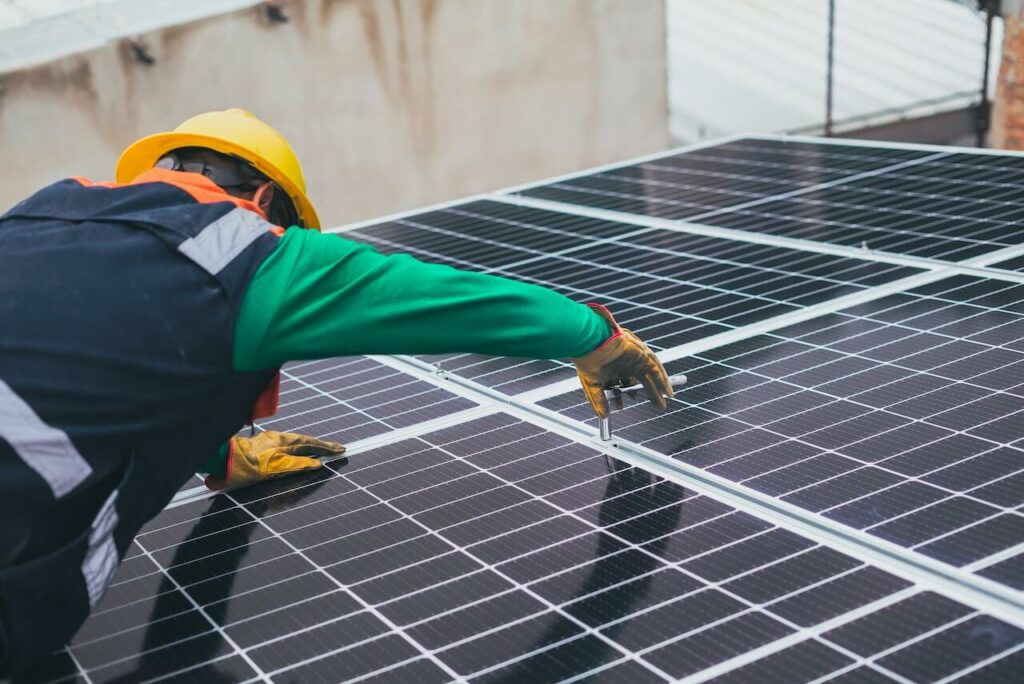In today’s world, the buzzword “sustainability” is on everyone’s lips, but what does it truly mean? At its core, sustainability refers to the capacity for our planet and its inhabitants to endure and thrive indefinitely by preserving and nurturing the delicate balance of economic, social and environmental systems. Yet, as we grapple with the consequences of climate change, pollution, and resource depletion, it is clear that the path we have chosen has led us far from this ideal.
What is Sustainability?
Definition of sustainability is a multifaceted concept that encompasses the ability to maintain and enhance the well-being of current and future generations by balancing environmental, economic and social considerations. It’s about meeting our present needs without compromising the ability of future generations to meet their own needs. This holistic approach ensures that we can continue to thrive on our planet while preserving its resources and eco systems for generations to come.
The Three Pillars of Sustainability
To better understand sustainability, it’s crucial to explore its three fundamental principles: environmental, social, and economic sustainability. These interconnected pillars are essential for achieving a sustainable world.
Environmental Sustainability

Environmental sustainability focuses on preserving and protecting our resources of the nature, eco systems, and biodiversity. This involves promoting practices that minimize pollution, reduce waste, conserve energy, and protect habitats. Examples of environmentally sustainable initiatives include reforestation efforts, the use of renewable energy sources, and the reduction of single-use plastics.
Social Sustainability
Social sustainability is concerned with enhancing the quality of life for all individuals and communities, promoting social equity, and ensuring access to basic services such as education, healthcare, and safe housing. This pillar emphasizes the importance of human rights, cultural diversity, and social inclusion. Initiatives like affordable housing programs, community development projects, and equal opportunity policies in the workplace contribute to social sustainability.
Economic Sustainability
Economic sustainability aims to create long-term economic growth that benefits everyone, without depleting natural resources or causing social inequity. This involves fostering innovation, supporting local businesses, and promoting fair trade practices. Sustainable economic development can be achieved through policies that encourage green industries, support small businesses, and prioritize responsible resource management.
Why is Sustainability Important?
Sustainability is an integral aspect of virtually every industry, from agriculture to fashion, and holds the key to addressing some of the most pressing challenges facing our planet today. Let’s explore the myriad benefits of embracing sustainability.
Economic Benefits
Sustainable practices can lead to cost savings and increased profits for businesses. For example, adopting energy-efficient technologies can reduce operational costs, while companies that invest in sustainable supply chains often experience improved brand reputation and customer loyalty. According to a 2017 Nielsen study, 81% of global consumers felt strongly that companies should help improve the environment.
Ecological Benefits
By reducing pollution, conserving resources, and preserving eco systems, sustainability helps maintain the delicate balance of our planet, which is essential for the survival of countless species, including humans. For instance, sustainable agriculture practices like crop rotation and organic farming can improve soil health, reduce water pollution, and support bio diversity.
Social Development Benefits
Sustainable practices promote social equity by ensuring that everyone has access to essential resources and opportunities, regardless of their background or location. For example, green building initiatives can improve living conditions in low-income communities, while fair labor policies ensure that workers are paid fairly and treated with dignity.
Combating Climate Change
Sustainability plays a pivotal role in mitigating climate change, as it encourages the reduction of greenhouse gas emissions, the preservation of forests that act as carbon sinks, and the development of clean, renewable energy sources. By making sustainability a priority, we can help slow down global warming and protect our planet for future generations.
What is Sustainable Development?

Development of sustainable is a global imperative that seeks to create a balance between economic growth, social well-being, and environmental protection. It is a holistic approach that ensures we meet the needs of the present without compromising the ability of future generations to meet their own needs.
Defining Sustainable Development
Sustainable development is a dynamic process that aims to improve the quality of life for all people while safeguarding the planet’s resources and eco systems for future generations. It encompasses three interconnected dimensions: economic development, social inclusion, and environmental sustainability. By integrating these dimensions, development of sustainable promotes a just and equitable world where everyone has the opportunity to prosper, and the environment is protected and preserved.
Purpose and Significance
The primary goal of development of sustainable is to strike a balance between human needs and the Earth’s capacity to support life. This approach recognizes that the well-being of people, the economy, and the environment are interdependent and that actions in one area can have repercussions in others. For example, unsustainable agricultural practices may lead to short-term economic gains but can cause long-term damage to soil health and bio diversity.
development of sustainable practices can be found in various industries, such as:
- Energy: The transition from fossil fuels to renewable energy sources like solar, wind, and hydroelectric power.
- Transportation: The promotion of public transportation, electric vehicles, and bike-sharing programs to reduce greenhouse gas emissions.
- Construction: Green building techniques that incorporate energy-efficient designs, sustainable materials, and water conservation measures.
- Agriculture: The adoption of organic farming, agroforestry, and integrated pest management to protect soil health, water resources, and bio diversity.
The United Nations and Sustainable Development
The United Nations (UN) plays a crucial role in promoting development of sustainable initiatives and driving global efforts to achieve a more equitable and sustainable world. In 2015, the UN adopted the 2030 Agenda for development of sustainable, which outlines a comprehensive roadmap for achieving a better and more sustainable future for all.
This ambitious agenda is guided by 17 development of sustainable Goals (SDGs) that address critical global challenges, such as poverty, inequality, climate change, and environmental degradation. The SDGs are designed to be universal, integrated, and indivisible, reflecting the interconnected nature of development of sustainable.
The Sustainable Development Goals (SDGs)
The 17 SDGs provide a framework for countries, businesses, and individuals to work together towards a common vision of a more sustainable and inclusive world. Each goal targets specific challenges and has a set of measurable targets and indicators for tracking progress. Here’s an overview of the SDGs:
- No Poverty: End poverty in all its forms everywhere.
- Zero Hunger: End hunger, achieve food security, and improve nutrition and sustainable agriculture.
- Good Health and Well-being: Ensure healthy lives and promote well-being for all at all ages.
- Quality Education: Ensure inclusive and equitable quality education and promote lifelong learning opportunities for all.
- Gender Equality: Achieve gender equality and empower all women and girls.
- Clean Water and Sanitation: Ensure availability and sustainable management of water and sanitation for all.
- Affordable and Clean Energy: Ensure access to affordable, reliable, sustainable, and modern energy for all.
- Decent Work and Economic Growth: Promote sustained, inclusive, and sustainable economic growth, full and productive employment, and decent work for all.
- Industry, Innovation, and Infrastructure: Build resilient infrastructure, promote inclusive and sustainable industrialization, and foster innovation.
- Reduced Inequalities: Reduce inequality within and among countries.
- Sustainable Cities and Communities: Make cities and human settlements inclusive, safe, resilient, and sustainable.
- Responsible Consumption and Production: Ensure sustainable consumption and production patterns.
- Climate Action: Take urgent action to combat climate change and its impacts.
- Life Below Water: Conserve and sustainably use the oceans, seas, and marine resources for development of sustainable.
- Life on Land: Protect, restore, and promote sustainable use of terrestrial ecosystems, sustainably manage forests, combat desertification, and halt and reverse land degradation and bio diversity loss.
- Peace, Justice, and Strong Institutions: Promote peaceful and inclusive societies for development of sustainable, provide access to justice for all, and build effective, accountable, and inclusive institutions at all levels.
- Partnerships for the Goals: Strengthen the means of implementation and revitalize the global partnership for sustainable development.
How Can Sustainability be Achieved?
In today’s world, the concept of sustainability has become increasingly important as we face pressing social, economic and environmental issues. Achieving sustainability means finding a balance between meeting our current needs without compromising the capability of future generations to meet their own needs.
Economic Sustainability
Economic sustainability refers to the long-term viability of an economy, ensuring that it continues to grow and prosper without depleting natural resources or causing social inequity. This involves fostering innovation, supporting local businesses, and promoting fair trade practices. Here are some ways in which economic sustainability can be achieved in different industries and sectors:
1. Green Industries: Encourage the development of industries that focus on renewable energy, sustainable agriculture, and eco-friendly products, creating new job opportunities and reducing dependence on non-renewable resources.
2. Resource Efficiency: Implement policies and practices that promote the efficient use of resources, such as recycling, waste reduction, and energy conservation, to minimize environmental impact and reduce costs.
3. Inclusive Growth: Ensure that economic growth benefits everyone by addressing income inequality, creating jobs, and providing equal access to education, healthcare, and other essential services.
Corporate Sustainability
Corporate sustainability is the commitment of businesses to operate in a manner that is environmentally, socially, and economically responsible. This involves integrating sustainability principles into their core operations, decision-making processes, and long-term strategies. Here are some ways companies can ensure corporate sustainability:
1. Environmental Stewardship: Implement eco-friendly practices like using renewable energy sources, reducing waste and emissions, and conserving water, to minimize their environmental footprint.
2. Social Responsibility: Foster a culture of inclusivity, diversity, and fairness within the organization, and contribute to community development initiatives and social causes.
3. Transparent Reporting: Regularly disclose information about their sustainability performance, allowing stake holders to assess the company’s commitment to sustainable practices and hold them accountable.
The Role of Stake holders
Stake holders, including employees, customers, investors, suppliers, and the wider community, play a crucial role in implementing sustainable practices. Their active involvement can help drive positive change and make sustainability a shared responsibility. Here are some ways stake holders can contribute more effectively:
1. Collaboration: Encourage open dialogue and collaboration between stake holders to identify shared sustainability goals, develop innovative solutions, and monitor progress.
2. Education and Awareness: Raise awareness about the importance of sustainability and provide stakeholders with the knowledge and tools they need to make informed decisions and take action.
3. Incentives and Recognition: Recognize and reward businesses, organizations, and individuals that demonstrate a strong commitment to sustainability, creating a positive feedback loop that encourages others to follow suit.




